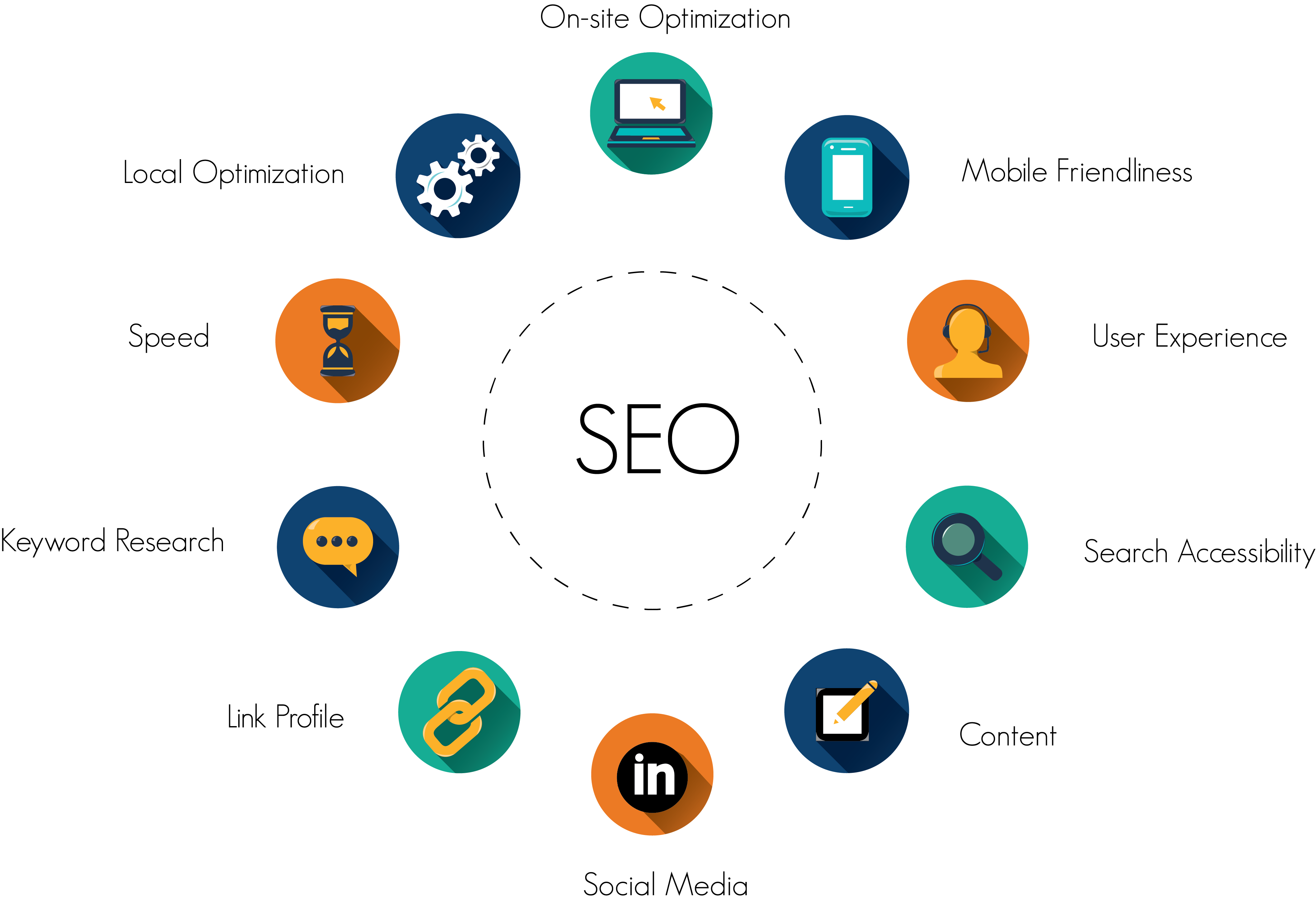Wahy Lab Solutions

Seo Services – Search Engine Optimization (SEO) greatly impacts website rankings by ensuring highquality, relevant results are delivered to users. Search engines focus on presenting results that align with user intent, improving visibility and driving traffic to relevant websites. When a user does a query in the search engine, it will scan, or crawl, different websites to conclude what the site is about. This leads them to submit more relevant results to those who are searching for certain topics or keywords.
Similarly, the search engines will analyze the site to determine how easy it is to navigate and read, rewarding user-friendly sites with higher rankings on the search engine results page.SEO is the process that organizations lead to help make sure that their site ranks high in the search engines for relevant keywords and phrases. In order to get your content in front of the right people, you want to try to optimize your blog post so that it will show up as a top result for anyone who searches for the phrase.

Now we can see what is SEO and how it works, let’s take a moment to look at some factors that can impact your search engine optimization ranking. Google will never disclose the exact algorithm they use to rank sites. Although we do have a pretty good understanding of some of the factors that impact search engine results page (SERP) rankings. These factors include both on-page and off-page factors, which we can see here; Seo Services
We have to look at some contents before go to on and off-page SEO. Content helps in both attracting the search engines and your organization to make connections with site visitors.
A high quality, relevant content pieces that you have on your website, the more likely search engines will be to rank your pages higher on the search engine results page. Similarly, the more engaging and effective content you have on your site, the more likely your visitors will be to spend some quality time on your website and maybe even make an order.
The secret of creating content that is optimized for both the search engines and your site visitors is to create a variety of content pieces that are well-written and on topics that are most relevant to visitors. Here are some contents that you can focus to help to improve your content quality and thus your search engine rankings.
Seo Services Another main thing to consider when building content for your site is SEO keywords and phrases. These are relevant words and phrases that a user might type in search engines when looking for answers to their queries or relevant products and services. When you create contents for these keywords and phrases, you improve your chances of ranking higher for these keywords on the search engine results page
Yet another factor that can affect your content, and thus your search engine ranking, is the freshness of your content. Freshness basically refers to how often your company posts new content to your website. However, creating new content is not the only way to keep your content fresh. You can also freshen up your content by updating posts, rewriting them and make them more effective, or adding new information and present statistics.
Though creating content takes time and resources, it will make the result in the end. Search engines love great content and consumers need quality content to better understand the value of service your organization provides. Begin by creating blogs and work to build a following on social media. Once you have a group of fans and followers, your firm can work to create many types of media to attract and create new leads.

Seo Services – The On-Page SEO factors are those components that happen on your website. These are the things that you have full control over, meaning that you can work to improve these elements over time by following best practices for SEO. This goes beyond just your content marketing to the deeper levels of your site’s HTML coding.
Here are some on-page SEO factors that can help you to grow your search ranking:
When strategically placing your SEO keywords and phrases, for example like"Digital marketing company in Kochi" on your web pages, it’s important to avoid over-optimization. Google and other search engines will penalize your page if it attempts to use keywords too many times throughout the content.
In addition, you want to make sure that each section of the content focuses on just one or two keywords. This helps ensure that your content is specific and relevant. Keyword stuffing can negatively impact SEO by creating thin, unfocused content that may harm your website’s ranking and user engagement. Instead, aim for natural, valuable content that effectively incorporates relevant keywords without compromising quality. This approach enhances user experience, improves SEO performance, and helps attract more targeted traffic to your website.
While site content performs a vital role in your search engine rankings, it’s also important to consider your site architecture. Utilize a website design optimized for search engines, ensuring easy scanning and crawling of your web pages and content. Internal links and a structured sitemap improve crawlability, helping search engines index and understand your content for better SEO.
Yet another concern when it comes to your website’s architecture is whether or not your website is mobile-friendly. Many users are searching for information and brands on their mobile devices. Ensure your website is mobile-friendly, allowing users to easily view, read, and navigate your site on any mobile device. This not only impacts the user experience, but it can also affect your SEO.

In addition to on-page SEO elements, off-page SEO factors like backlinks, social signals, and brand mentions significantly influence your ranking.
Here are a few of the different Seo Services off-page SEO factors that can impact your search engine rankings: